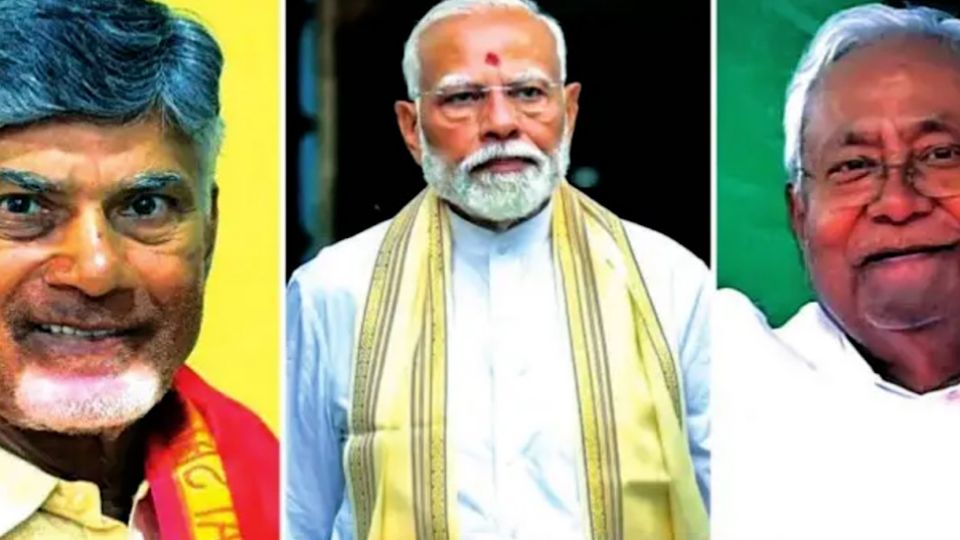June 11, 2024
NEW DELHI – Prime Minister Narendra Modi’s securing a third term marks a significant milestone in his political career. With a mandate of only 240 seats, falling short of the 272 required for independent governance, he now heads a coalition government with National Democratic Alliance (NDA) allies.
His survival will depend on his partners. The NDA is a political coalition of centre-right parties led by the Bharatiya Janata Party.
The seats secured by allies have given the NDA coalition the numbers it needs to rule.
This situation is new to Modi. As a leader who believed in centralising power, forming a coalition government, with its inherent complexities and power-sharing dynamics, poses a challenge.
This shift could significantly alter the course of his political agenda.
This could also lead to a moderation of his religious-nationalist stance and a greater emphasis on policies that appeal to the diverse coalition partners.
Modi 3.0, though, is expected to continue its policies of economic reform, national security, and social welfare.
India is not new to coalitions; it has a messy history of multi-party governments.
Former Prime Minister and BJP leader Atal Bihari Vajpayee also presided over an unprecedented alliance of 24 parties from 1998 to 2004.
Dealing with coalition partners may be challenging as the Prime Minister faces a more influential opposition.
There will be other challenges as well. Questions will be raised about the extent of Modi’s power.
New political circumstances have emerged, with the party’s main NDA allies now playing crucial roles in the ruling coalition.
The first major hurdle was forming the government, which required him to navigate the complexities of coalition politics.
He appears to have accomplished this with relative comfort.
Continuing his assertive and independent political style may take time and effort.
The next step is allocating portfolios that are satisfactory to allies.
Both Nitish Kumar and N Chandrababu Naidu are tough negotiators and will demand significant portfolios.
Smaller allies will assert their influence, shaping the government’s policies and decisions by seeking to oversee key ministries.
The main challenge is to keep the NDA together.
Rumours suggest the rival INDIA coalition wanted to lure the JD(U) and TDP to form the government.
Such moves, whenever they are attempted, could lead to a realignment of political forces, tilting the balance of power within the coalition and influencing the government’s policies and decisions.
Whether Modi’s NDA allies will remain loyal is a million-dollar question.
This uncertainty, rooted in their history of unreliability, adds a layer of suspense. Some of the BJP’s allies, such as the TDP, Shiv Sena, AIADMK, and Akali Dal, have ended their partnerships in the past decade. In 2018, the TDP left the alliance because Andhra Pradesh didn’t receive special category status. Now, the TDP and JD(U) are back in partnership with the BJP.
The earlier breaks in partnership did not affect the government.
But in the future, Modi will need always to be mindful of the feelings of important allies like the TDP and JD (U).
Both Naidu and Nitish Kumar, with 28 seats between them, and labelled as “kingmakers”, have long advocated for special status for their respective states.
Nitish Kumar, known as’ Palti Kumar’ for his frequent changes, ended his partnership with the BJP in 2014 over the issue of the BJP declaring Modi the prime ministerial candidate.
He later joined the NDA and again broke with the BJP in 2022 to form a government with the RJD.
This year, he returned to the NDA fold.
Passing legislation on the more ambitious aspects of the government reform agenda could be challenging due to coalition politics and a weakened mandate.
This could slow down policy implementation, leading to a reevaluation of the government’s reform agenda.
Even though they do not have a majority, the opposition will have enough members in parliamentary committees to prevent the passing of controversial bills.
This means Modi’s ability to push the BJP’s agenda will be challenged.
Important initiatives such as the Uniform Civil Code and One Nation One Poll could be delayed.
Changes in political alliances should be expected.
While the INDIA bloc will continually seek chinks in the NDA armour, Modi too will try hard to transform his minority government into a majority over the coming days.
But initially, the Prime Minister will have to walk a tightrope.


